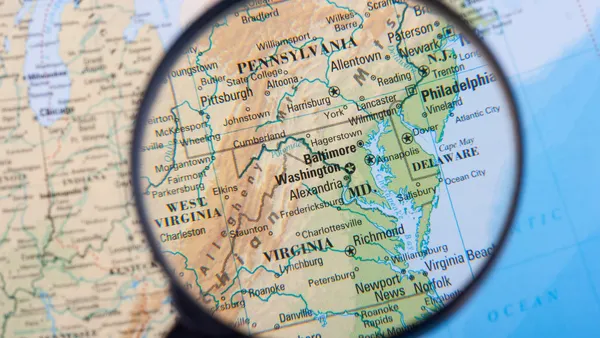Dive Brief:
-
Senate Banking Committee Chairman Mike Crapo, R-ID, said Wednesday he does not support the Secure and Fair Enforcement (SAFE) Banking Act, a landmark bill that would create protections for financial institutions that provide services to cannabis-related businesses.
-
"I have significant concerns that the SAFE Banking Act does not address the high level potency of marijuana, marketing tactics to children, lack of research on marijuana’s effects, and the need to prevent bad actors and cartels from using the banks to disguise ill-gotten cash to launder money into the financial system," he said in a statement.
-
The Democratic-controlled House of Representatives passed the bill in September, but the legislation has long been expected to face a tougher audience in the GOP-led Senate.
Dive Insight:
Crapo’s remarks mark a major blow to the marijuana industry and its ancillary businesses, which hope the bill will spur more banks to service the sector.
Crapo surprised the industry in July, when he said his committee would hold a hearing on cannabis banking, after he previously indicated he wouldn’t take up the issue so long as the drug is illegal at the federal level. Crapo also told Politico in September he planned to hold a vote on the bill before the end of the year. That scenario now is less likely, given Crapo’s recent statement.
Cannabis’s designation as a Schedule 1 drug under federal law has left many financial institutions reluctant to open bank accounts for the emerging industry.
In his memo, Crapo called for feedback on a number of issues, including language in the bill that addresses "Operation Choke Point," an Obama-era initiative that investigated banks' ties to firearms dealers and payday lenders, industries believed to be linked to money laundering.
Several revisions were made to the SAFE Banking Act before it passed to the Senate, including one that addressed the Justice Department operation that lasted from 2013 to 2017. Other revisions, including clarification that the bill also provides protections for the hemp industry, were largely seen as an attempt to curry favor with the Senate’s Republican lawmakers.
Crapo said in his statement that he is "firmly opposed to efforts to legalize marijuana on the federal level" and in his home state of Idaho. He also called for federal agencies to conduct research on the health effects of cannabis.
He sought an amendment that would direct the Financial Crimes Enforcement Network (FinCEN) "to promulgate a rulemaking within a specified period of time, after enactment of this Act, to address issues pertaining to the provision of financial services to the marijuana industry and ancillary businesses, including Suspicious Activity Reports (SARs) and dealing with legacy cash."
Trade groups the American Bankers Association (ABA) and the Credit Union National Association (CUNA), which both backed the bill, said they welcomed Crapo’s call for feedback.
"We appreciate Chairman Crapo sharing his concerns with the cannabis banking policy landscape," Ryan Donovan, CUNA's chief advocacy officer, said in a statement. "America’s credit unions are eager to continue engaging with the Chairman as he seeks a solution that enhances community safety through access to mainstream financial services."
James Ballentine, ABA's executive vice president of congressional relations, said the trade group respects Crapo’s request for additional public input.
"We continue to believe that the SAFE Banking Act responsibly addresses the current legal limbo over cannabis banking, and a strong bipartisan majority in the House shares that view," Ballentine said in a statement. "We urge the committee to gather this information in a timely manner so the Senate can follow the House’s lead and pass legislation that will help protect communities across the country from an increasing public safety threat."












